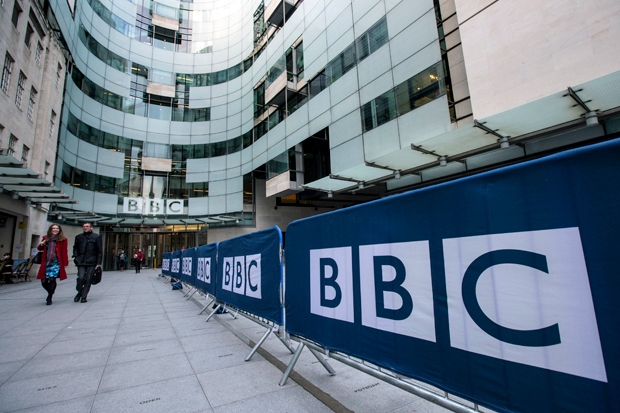After I failed my O-levels and decided to leave school, my father suggested I go to Israel to work on a kibbutz. I’m not sure why he thought this would cure me of my self-righteous adolescent narcissism, but it worked. I returned to England determined to go back to school and make something of myself.
I very nearly didn’t come back. The first kibbutz I went to was on the Israeli-Lebanese border and about a week after I arrived it was targeted by a group of Palestinian rebels. Katyusha rockets rained down from all sides and the other guest workers and I were ushered into a special air-raid shelter reserved for ‘volunteers’. It was a particularly dank and mouldy affair, with no mod cons save for an ancient, battery-operated radio. As we sat there for hours, waiting for the all-clear, our only comfort was listening to the BBC World Service.
This was in the run-up to the 1982 Lebanon war and over the next few weeks these attacks became a regular occurrence. Take it from me, if you’re squeezed into a hole in the ground, worried about taking a direct hit from a Katyusha missile, there’s something deeply reassuring about hearing ‘Lilli-burlero’, followed by the words ‘This is London.’ It wasn’t just that it was a source of news we could depend on — literally the only source at that time. It was the sense that, in spite of the chaos and savagery all about us, there was still an island of sanity somewhere out there. The World Service was an umbilical cord connecting us with civilisation. In those hours I caught a glimpse of what it must have been like for the citizens of occupied Europe to tune into the BBC Overseas Service.
Ever since then I have always felt an emotional attachment to the BBC. I am not one of those Tories who believes there is something inherently left-of-centre about a public broadcast organisation and the only solution is to abolish the licence fee. Rather, I think of the BBC as a precious piece of our heritage that has been captured by the enemy. The task facing the present Conservative government is how to prise it from their grasp without destroying it at the same time.
It would be an exaggeration to call the people who now run the organisation as ‘Marxists’, obediently following Gramsci’s advice to complete the long march through the institutions. Rather, they are, for the most part, metropolitan liberals who think of their left-of-centre views on issues like Europe and immigration as politically uncontroversial. They don’t regard themselves as biased because they never encounter anyone in their day-to-day lives who doesn’t hold the same opinions. As far as they’re concerned, they’re just expressing the commonsense wisdom that everybody shares, whether left or right.
I could give countless examples of this. There was the BBC’s involvement in the opening ceremony of the 2012 Olympic Games, accurately described as a £27 million party political broadcast for the Labour party; the fact that members of the far left are regularly employed as ‘comedians’ on Radio 4, while no BBC commissioning editor would ever dream of employing anyone on the far right; and the wholly one-sided coverage the Corporation has given to free schools, something I’m particularly sensitive about. But there’s no need for any examples because those who run it wouldn’t dispute this accusation. As Mark Thompson, the former director-general, told the New Statesman, the BBC suffers from ‘a massive bias to the left’.
So what can John Whittingdale, the new Culture Secretary, do to restore the BBC’s reputation for political impartiality? Everyone agrees that the BBC has grown too big and in many respects is just mimicking a commercial organisation. So separate off the drama and light entertainment, the music and the sport, and invite all those inessential bits to become self-funding entities. That would leave only the news and current affairs division to be financed by the licence fee, which could be much reduced. I would then make the BBC Trust responsible for appointing all the members of the executive board, not just the director-general, and, crucially, I would remove the power to appoint members of the trust from the Prime Minister and transfer it to a politically neutral body, such as the Privy Council or some other institution created for the task.
That should do it. And for the sake of all those beleaguered souls out there, cowering in the dark, it must be done or it will surely perish.
Toby Young is associate editor of The Spectator.







Comments